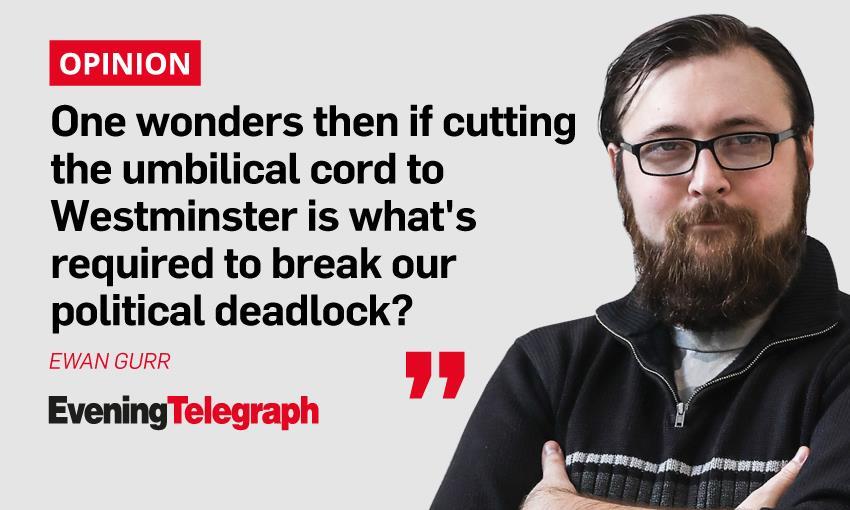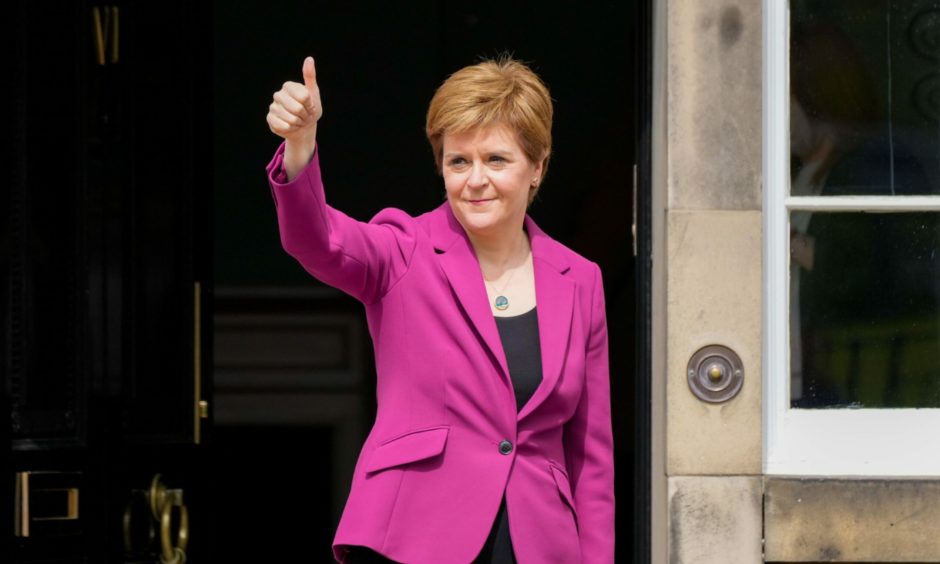There’s an umbilical cord that ties the Scottish Conservatives, Scottish Labour and Scottish Liberal Democrats to their Westminster parties. And it tends to hinder rather than help their electoral prospects.
Unpopular policies south of the border have a way of damaging prospects in the north.
The late Margaret Thatcher’s early introduction of a poll tax to Scotland in 1989 wiped out the Tories’ election chances a generation.
Tony Blair’s invasion of Iraq and Afghanistan in 2003 and Nick Clegg’s backsliding on electoral pledges when he agreed to a coalition deal with the Conservatives in 2010 did much the same for Labour and the Lib Dems.

The effects ricocheted north as the number of Conservative MPs dwindled from 11 to zero in Scotland within a decade.
Labour lost their grip on power and the Scottish Liberals shrunk from 17 to five seats in Holyrood, taking the two governing bodies of post-devolution Scotland from the mainstream to the margins.
The SNP have, of course, followed a different trajectory. Their membership soared beyond 100,000 in 2015 and they grew from six to 56 MPs in Westminster.
However, their dominance at Holyrood means the Scottish Parliament’s vision of a more co-operative institution appears to have failed.
Power has become contained and stasis entrenched.
Time to cut the umbilical cord?
One wonders then if cutting the umbilical cord to Westminster is what’s required to break our political deadlock?
Peter Duncan, a former Scottish Conservative MP and chairman, seems to think so.
In The Sunday Times, he said the pressure building around Boris Johnson was “hurting the Conservative cause in Scotland.”
Mr Duncan forecasts heavy losses in May and proposes a separate centre-right party in Scotland.
Writing in the Herald, former Scottish Conservative MSP Adam Tomkins said: “None of the opposition parties are going to get near power until they break free of the millstones around their necks…”
My three New Year’s resolutions for a better politics in Scotland: one for the nationalists, one for the unionists, and one for the people themselves https://t.co/Rm8rrgUCNR
— Adam Tomkins (@ProfTomkins) December 29, 2021
He goes further than Duncan by proposing a “seat-by-seat (and) single opponent” strategy to dislodge the SNP.
It is an interesting proposition.
And in a week when former SNP policy development convener Chris Hanlon lit a fire by proposing a “devo-min-max” approach in any future referendum, it may be a good time for unionists to get their act together.
Bigger questions remain however.
Is gaming the democratic system something the people of Scotland would stand for and is it is a price they are prepared to pay for a more representative Scottish Parliament?











